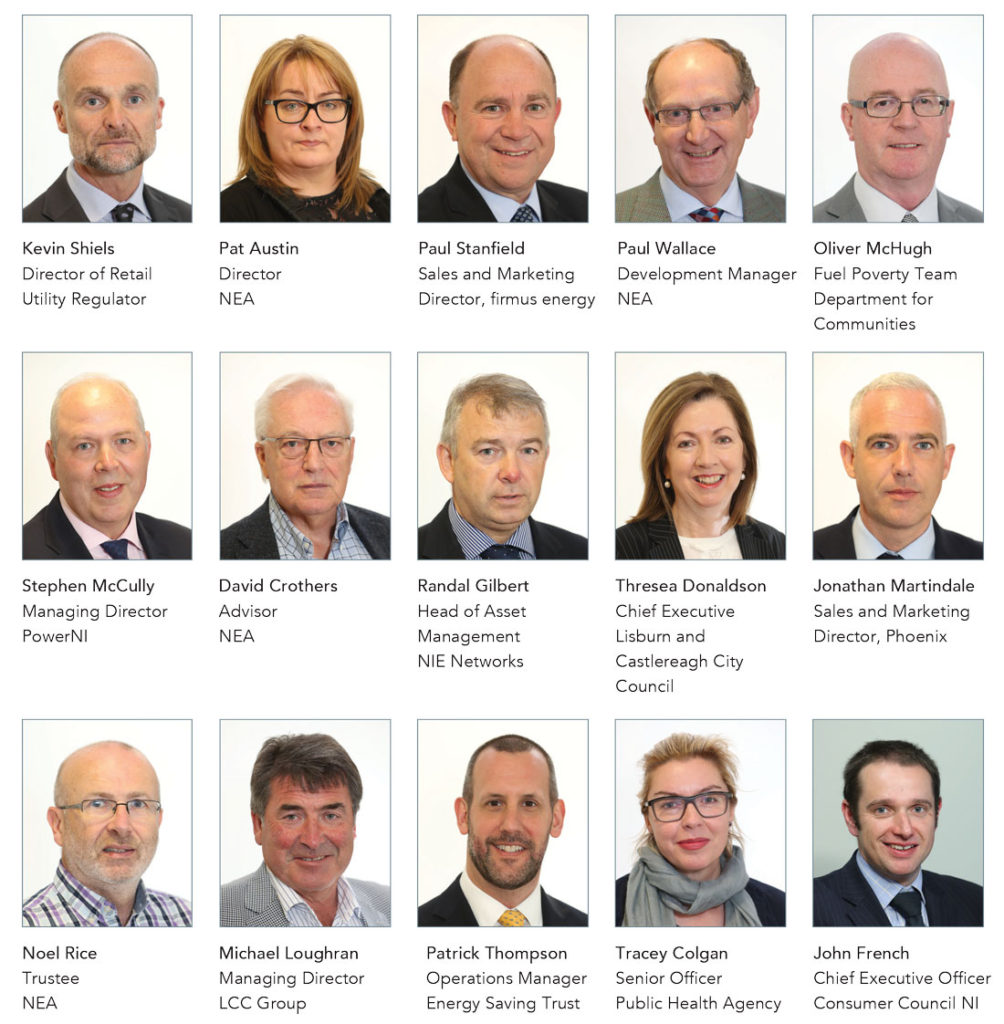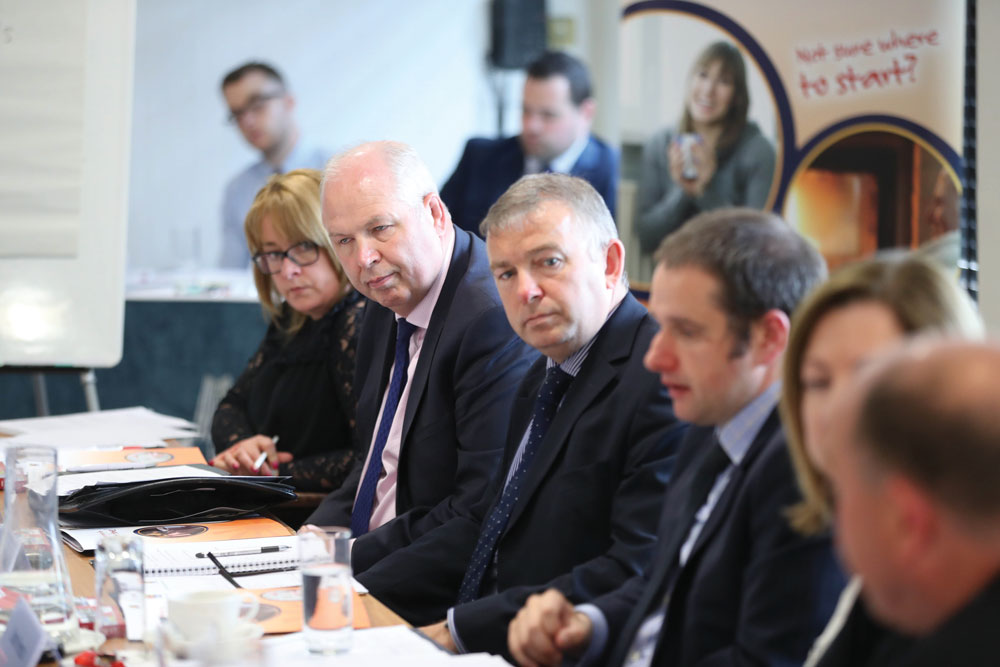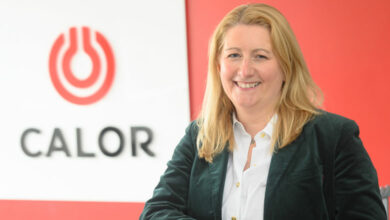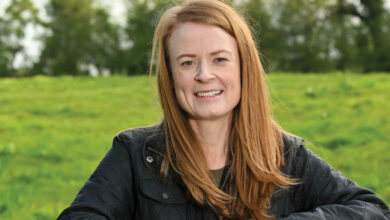Delivering energy efficiency: the forgotten fuel?
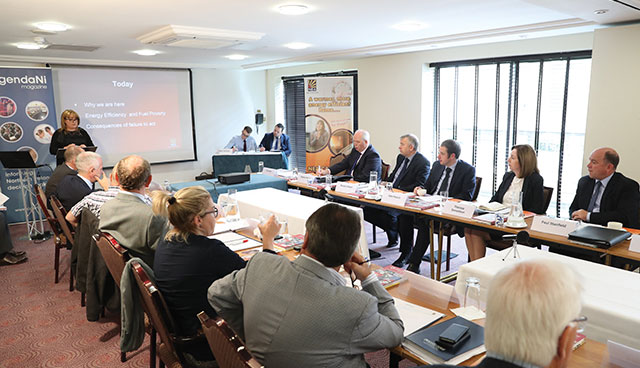
National Energy Action, supported by firmus energy, hosted a range of key stakeholders in the energy sector for a think tank in Belfast.


Why is energy efficiency important?
Patrick Thompson
The energy trilemma (cost, sustainability and security of supply) can benefit hugely from energy efficiency. However, viewing energy efficiency as a key factor in the trilemma alone, often means that the softer, social benefits are overlooked.
Cost is often quoted as one of the main challenges when discussing energy efficiency, especially for an individual household or supplier. However, undoubtedly the long-term implications of greater energy efficiency are cost effective for society when you look at how it plays into health, transport, our air quality and the built environment. Often, we as practitioners are focussed in one area and fail to see the key role energy efficiency can play on a wider basis and the bigger arena in which we can influence.
 Paul Wallace
Paul Wallace
I agree, there needs to be a shift away from the rhetoric that energy efficiency is important only as a means to save money or conserve energy. The International Energy Agency (IEA) highlighted 15 benefits of energy efficiency including the need for greater measurement and evaluation in areas such as health and wellbeing, poverty alleviation and carbon reduction.
Both policy makers and households all need to endorse longer-term solutions. Energy efficiency retrofits of low-income housing offer a more enduring solution to these problems than for example, fuel payments because they address the cause of fuel poverty, rather than the symptoms.
Tracey Colgan
From a health perspective the importance of energy efficiency is to reduce fuel poverty. We look at energy efficiency as a way of helping the most vulnerable in society. The direct health impacts of people living in fuel poverty are clear in respiratory, cardio vascular and mental health ailments. However, it’s evident that there are wider impacts around education and food poverty, for example. We work in partnership with other organisations to support local agendas to help alleviate fuel poverty, through collaboration across a range of sectors to improve health and wellbeing and tackle health inequalities for those most at risk.
John French
The economic benefits of energy efficiency are equally as important as the social aspect. Northern Ireland’s economy is heavily dependent on consumer expenditure and greater energy efficiency can have a big impact on increasing the discretionary income of households. By reducing consumer spend in energy through efficiency measures we will see a greater diversity of expenditure into the Northern Ireland economy.
Jonathan Martindale
The importance of energy efficiency is not being reflected on the political agenda. Looking at the overall spend on energy efficiency measures by Government (estimated £30 million) it appears disproportionate to the problem. When you weigh up expenditure in those primary schemes against the wider social impacts of energy efficiency, I believe there is a strong feeling that energy efficiency is not sufficiently supported by the Northern Ireland Executive.
Patrick Thompson
It’s clear that the overall energy framework needs reviewed but even prior to that there needs to be a strong steer from government in this area. We also have a role to play in ensuring government understand the wider benefits of energy efficiency and that it’s not just around domestic bills.
David Crothers
Energy efficiency conversations tend to centre around the regulated sectors of gas and electricity but I question whether a heavy reliance on oil in Northern Ireland is inhibiting the ability to impact on energy efficient development.
Pat Austin
Northern Ireland’s reliance on oil is 68 per cent compared to 4 per cent in England. The importance of energy efficiency also lies in greater regulation in this area to afford greater protections and controls to people, especially the most vulnerable.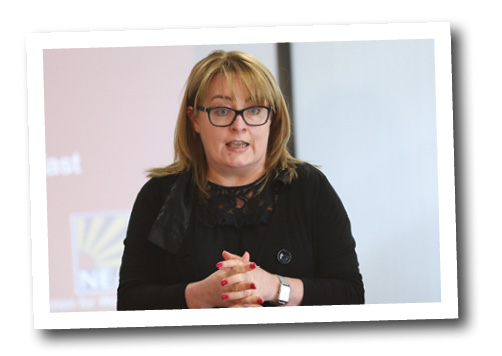
Could energy efficiency improve energy security of supply and does it have a role in reducing the need for investment in energy networks?
Stephen McCully
The benefits of energy efficiency lie in the long-term, not the short-term. It’s a very important aspect and is recognised as a central plank of the EU’s Energy Security Strategy. A shrinking consumption level is beneficial in terms of the future sustainability of meeting demand.
Randal Gilbert
I agree, if we consider energy efficiency in terms of individual customers attempting to consume less energy, then unless there is a mass correlation within a local network peak demand, it’s unlikely to impact on security of supply to a large degree in the short-term. Currently, there is a drive in households and businesses to becoming less reliant on the network but we don’t yet see a trend whereby consumers wish to disconnect from the network completely. In the short-term there is limited opportunity for greater energy efficiency to improve security of supply or reduced investment in the network but certainly a global reduction would help.
Kevin Shiels
To the individual household, energy efficiency is quite important and can be effective quickly in reducing energy bills. The problem arises that conversion costs tend to be up-front and balancing that initial cost against a slow flowing benefit stream is one of the reasons energy efficiency is underinvested in and not a priority on the government’s agenda. At grid level, interesting innovations around peak demand reductions in collaboration with customers are happening, although in their infancy in Northern Ireland. These provide a blueprint for developing more mechanisms for making demand more responsive to the grid requirements.
Randal Gilbert
The network has become a lot more dynamic than when it was designed over six decades ago as a push power one-way system. We now have energy sources embedded across the network and as a result it is now required to be designed and operated differently and more efficiently. The things that will protect or enhance the security of supply concerns include use of embedded generation, adoption of energy storage and flexible contracted demand arrangements with customers.
Stephen McCully
From an energy security perspective, we were probably better at this in late ‘90s with the Load Management Tariff, when large industry would have dropped load to meet generation requirements and would have been rewarded to do so. As new markets flow through, there is an aspect within I-SEM that will hopefully attract the demand side into more practical involvement in the market. There is a lot of great innovation, mostly around load-shifting, with battery storage seeming the most popular.
Patrick Thompson
As an observation, conversations on the energy networks and the all-island infrastructure don’t have energy efficiency on the agenda. I think sometimes the word renewables is used as a proxy for it and rather than discuss energy efficiency, there is a leapfrog to things like battery storage and other innovations. That’s happening at both an industrial and a domestic level and I would hate that we would lose sight of energy efficiency in those conversations going forward.
Randal Gilbert
That’s true, decarbonisation seems to be a headline attraction, even though energy efficiency is just as important. Certainly, the EU strategy gives them both equal merit. Perhaps the problem is a need for greater education on the benefits of energy efficiency. There appears to be a degree of apathy around energy efficiency and it may not be at the forefront of people’s thinking. Education on the available technologies, better consumption data (e.g. smart metering), coupled with the right tariff signals would help the consumer better understand and make informed choices.
Pat Austin
In 2015, Scotland made energy efficiency an infrastructure priority and while still in its infancy the long-term aim is the supply will be more secure and investment in the networks will be reduced. The key part of this priority is that it has coalesced key government departments together to develop priorities. It has forced traction on work around a broader energy efficiency programme and from that programme fuel poverty interventions have stemmed.
Oliver McHugh
In recent years, we’ve seen two attempts to move energy efficiency schemes to infrastructure level. The Green New Deal which fell in favour of a boiler replacement scheme and the EnergyWise scheme. Whether we continue to target those on the lowest incomes and the most vulnerable or whether we look as a wider infrastructure approach is important. Our current Affordable Warmth Scheme, I believe, targets the right households and gives them all the energy efficiency improvements we can bring to them.
Theresa Donaldson
I think developing a central energy efficiency strategy is key to its importance on everyone’s agenda. Energy efficiency is clearly a cross-cutting matter when you look at areas like health and social care, construction and our growing population demographic. A simple observation tells us that as our population increases alongside emerging new technologies into the home, energy requirements are going to increase. Having energy efficiency raised in a Programme for Government would bound people to work across the departmental divisions and silos we often find ourselves in. At local government level that’s something we’re keen to do. Our community planning responsibilities ensure that we are pushing ahead at local level but I think an overall shift requires central government lead.
What are the three main issues to be addressed to make energy efficiency happen?
Noel Rice
Firstly, a strategy that is endorsed at the highest level of government, whether that be at the Assembly or elsewhere. Secondly, for many people in the private sector, it needs to be affordable. The majority of those in fuel poverty are in the private sector and the solutions need to be affordable for them. Thirdly, I think it’s a hearts and minds issue. There is a need for some sort of educational campaign which emphasises that it is socially unacceptable to waste energy.
Energy efficiency must be made an infrastructure priority with measurable outcomes and milestones. That would force the budget holders across the departments, if they are required to report year-on-year on what they have achieved and delivered in terms of infrastructure then we are more likely to see budgets being allocated to that end.
Theresa Donaldson
It’s about getting energy efficiency on the agenda at the highest level. But also on a local level to ensure that individuals take responsibility. We know that energy supplies are finite and shouldn’t miss an opportunity to promote initiatives for conservation.
Kevin Shiels
The one thing we really do need is some form of integrated strategy for energy efficiency that is coordinated and delivered in a cross-cutting way. Once you have that strategy, I think a lot of the other things will fall into place. That strategy should have clear ownership and accountability, targets and the mechanisms by which we deal with the barriers to efficiency, whether they be educational or financial.
Paul Stanfield
Unfortunately, the environment often may be at the bottom of someone’s list of concerns when considering converting to gas. As a gas network company, bringing the environment and energy efficiency to the fore is something that we aim to promote.
Michael Loughran
I see two major areas for focus here. One, the major suppliers and two, the home. We have a diversity of homes in Northern Ireland, both urban and rural, and different appliances operating in these areas. Consequently, there is a need to focus upon the installation of the most efficient appliances, ensuring insulation and providing education. That’s not going to help if energy suppliers are going down the wrong route.
Patrick Thompson
We also have an issue with market failures. Private sector landlords make the initial outlay but the tenants in the house receive the benefit, so a balance must be found to incentivise the landlord enough to ensure an affordable, heated home.
David Crothers
It must be embedded in the Programme for Government and there should be a will and a commitment to drive it through. Given that energy now cuts across the functions of so many departments, from my point of view it would be better if there was one department that would have responsibility for driving this through, rather than as is presently the case, two or three.”
Jonathan Martindale
There should not be an underestimation of the required level of devotion to such a project, to educate, enthuse and inform people. Domestic customers wouldn’t be familiar with Affordable Warmth and NISEP. This means that the impact of these two schemes is only focused upon the people who are directly benefiting. It does nothing to change mindset or encourage those people who are outside the criteria to consider energy efficiency.
The Boiler Replacement Allowance was one scheme which started to change mindsets. We received much interest from people considering natural gas who fell outside of the scheme because there is a strong message in saying that inefficient boilers are not good things to have.
Theresa Donaldson
As a council, we are hearing that businesses are struggling with the price of energy so we need to look at it on several levels. An energy efficiency strategy should take all those considerations into account and strive towards solutions. Looking ahead, this is not a problem that is simply going to evaporate. There are some solutions that we are aware that people may not like, but have to be brought forward to make energy sustainable and to conserve our supply.
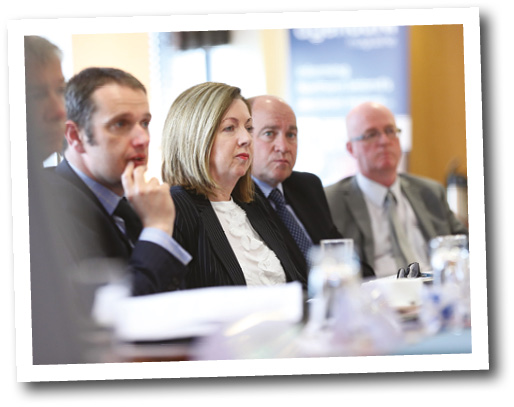
John French
Northern Ireland is different. In terms of income levels, as the trilemma shows, our average salary is just under £20,000 per annum compared to the average salary in the UK which is just slightly under £26,000. It is a different market. I think there needs to be a bespoke policy formulated.
Oliver McHugh
There is nothing in the Programme for Government which commits to actually treating energy efficiency as an infrastructure issue. Current schemes are far short of an infrastructure project and the funding gap is stark. Bryson did some work on what it would cost to introduce and infrastructure type approach and the figures were huge. As such, there is no option but to continue with a piecemeal approach.
Kevin Shiels
The average energy consumption per household is already down significantly in the last five years across payment types relative to Great Britain, across both electricity and gas. This is likely because of the comparatively high use of pre-payment meters in Northern Ireland. Customers are given a very upfront price signal to cut energy consumption when they top up and adopt an enhanced awareness of energy usage.
Tracey Colgan
Yes, I totally agree with what has been said in reference to educating people around energy usage, but we also need to bear in mind clients who don’t have an option around energy usage. There are individuals who need to use energy around the clock because they are in their homes for the majority of the time. Those with disabilities, including physical or mental health issues are among some of the most vulnerable.
Pat Austin
We have a lot of prepayment meters now in households and while they are good things to have in terms of budgeting; they also encourage self-disconnection. We need to know what is happening behind the door. Yes, there could be less consumption going into that home, but it could be as result of disconnection from, or the rationing of, heat.
Theresa Donaldson
We need a very real and powerful message for politicians to pick up on with regards to fuel poverty. Cost needs to be considered in a much wider format, perhaps as a percentage of household income. We’re spending a percentage of our incomes that could be being spent elsewhere and it’s trying to get that message across in order to inhibit policy makers from resting on their laurels in relation to cost.
David Crothers
The elephant in the room is a heavy reliance on oil and its role in limiting space to manoeuvre in order to address the myriad of issues.
Patrick Thompson
I think from a pure energy efficiency perspective, we have a huge legacy of old boilers that aren’t getting replaced as an oil to gas conversion. Thus, there is a whole layer of education absent which you might receive during the conversion process.
If you leave aside price regulation completely and focus on the other aspects of regulation, there doesn’t seem to be a rationale why there should be any difference between oil, coal, gas and electricity.
Noel Rice
We have heard of people performing their own installations even though they have no formal training in plumbing or heating. We hear, even though building regulations require an A and a B boiler to be installed, for many people it’s a crisis installation who, when they ring a plumber, then offers an alternative boiler a lot cheaper. Anecdotally there are still many old boilers circulating. When these go in, they stay in for the next 20 years.”
Jonathan Martindale
I think that the debate strongly emphasises the necessity for education. A significant majority of the 10,000 gas boilers being installed annually into domestic homes across the firmus and Phoenix Natural Gas licencing area would not happen if a connection to the gas network was not available. The gas opportunity is persuading people to make a change that otherwise they simply wouldn’t. This is due to the effective promotion of a ‘gas is good’ message reaching householders.
Whatever we do it has to be comprehensive because there’s no silver bullet that’s going to solve all of this. We can talk in divine isolation about fuel poverty, but it has to be part of huge policy piece that Northern Ireland has to be brave enough to wrestle with.
How can consumers be empowered to understand energy efficiency?
Patrick Thompson
We need to have appropriate messages for appropriate market groups. It’s horses for courses in simple terms. You need to get the policies and the mechanisms right. I think there a number of tools that can be used when you have the money to do it.
Stephen McCully
The prevalence of pre-payment puts customers very much in touch with their spending habits. My sense would be that in Northern Ireland we’re probably in a better position when it comes to information at hand. A lot of customers are aware of what their weekly spend on electricity and gas might be. Metering is a help.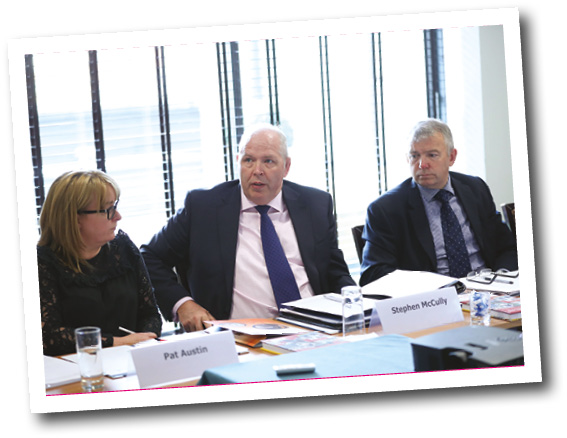
David Crothers
Terminology is important in the context of providing a comprehensible message. While we understand, what is meant by energy efficiency, if you are a low-income household, what does energy efficiency mean? I don’t think it means a great deal. Fuel costs have more relevance to low-income households, so I think it is important to get the message right and send out the right signals.
Kevin Shiels
The case has not been effectively presented to decision makers in terms of the multiple benefits and the long pay-off. Policy makers and budget allocators at the highest-level are not seeing energy efficiency on that radar along with those other priorities.
Theresa Donaldson
We’re entering very choppy economic waters, so we need to have these conversations to the fore and ensure that all politicians are acting on behalf of consumers. There is possibly scope to go out and test this.
John French
We went out last year and asked people questions about energy efficiency. Two thirds of people just don’t understand the benefits. If you boil consumer policy down alongside consumer views, the two things that people are looking for whatever they buy is value for money and whether they can trust the product they are getting.
I think in terms of energy efficiency, there are difficulties in explaining the process of switching energy provider when compared, for example, with buying a new car where you can clearly see how much of a saving you can make. With energy efficiency, it’s a bit more obscure and less tangible. As an industry, there needs to be an attempt to explain to both commercial and domestic consumers what they actually get from energy efficiency.
Jonathan Martindale
The business community are largely on top of economic efficiency, because of the economic practicalities of running a business, this is not replicated among domestic consumers. Householders are much different because the initial outlay reaps payback over a much longer period of time. This means that to engage with this audience it’s vitally important to celebrate the holistic impacts of energy efficiency to areas such as health and lifestyle as well as the economic benefits.
Patrick Thompson
It needs appropriate messaging. Yes, there is consumer apathy and a lack of consumer interest while prices are so relatively low. What needs to underpin this change in message is some level of long-term policy direction, for example a 10-year energy efficiency plan where businesses can gear up in the knowledge that there will be government help to do that. Householders too need to consistently hear the same message and realise that yes, this is a good thing and there are incentives available.
